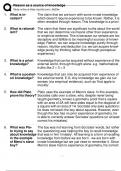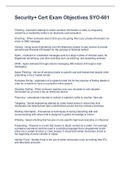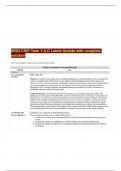Summary
Summary Flashcards for 'reason as a source of knowledge' Module for Epistemolgy topic of A level Philosophy AQA.
- Course
- Institution
- Book
Flashcards for 'reason as a source of knowledge' Module for Epistemolgy topic of A level Philosophy AQA. From an A* student. Can also provide access to quizlet flashcards if asked.
[Show more]






